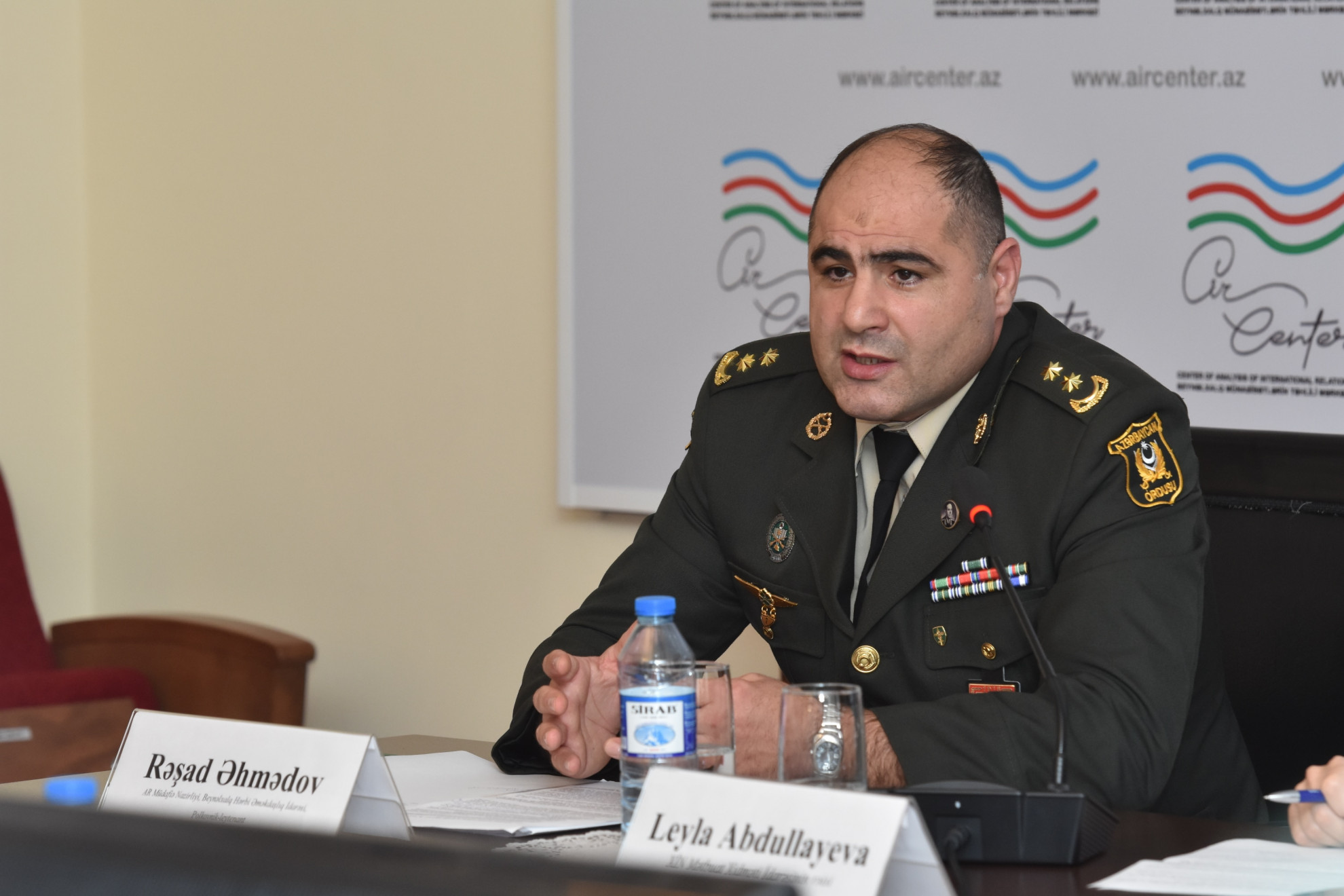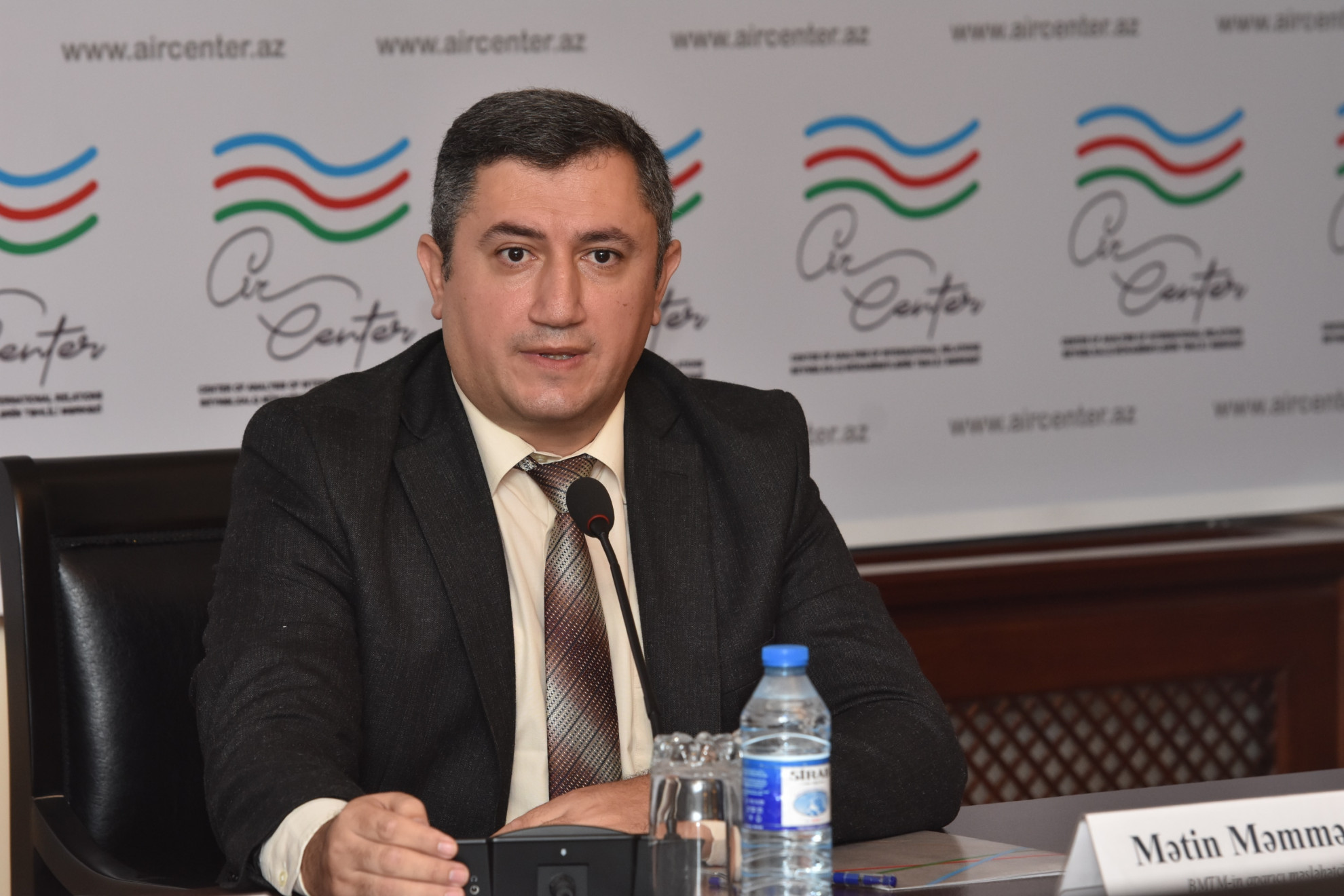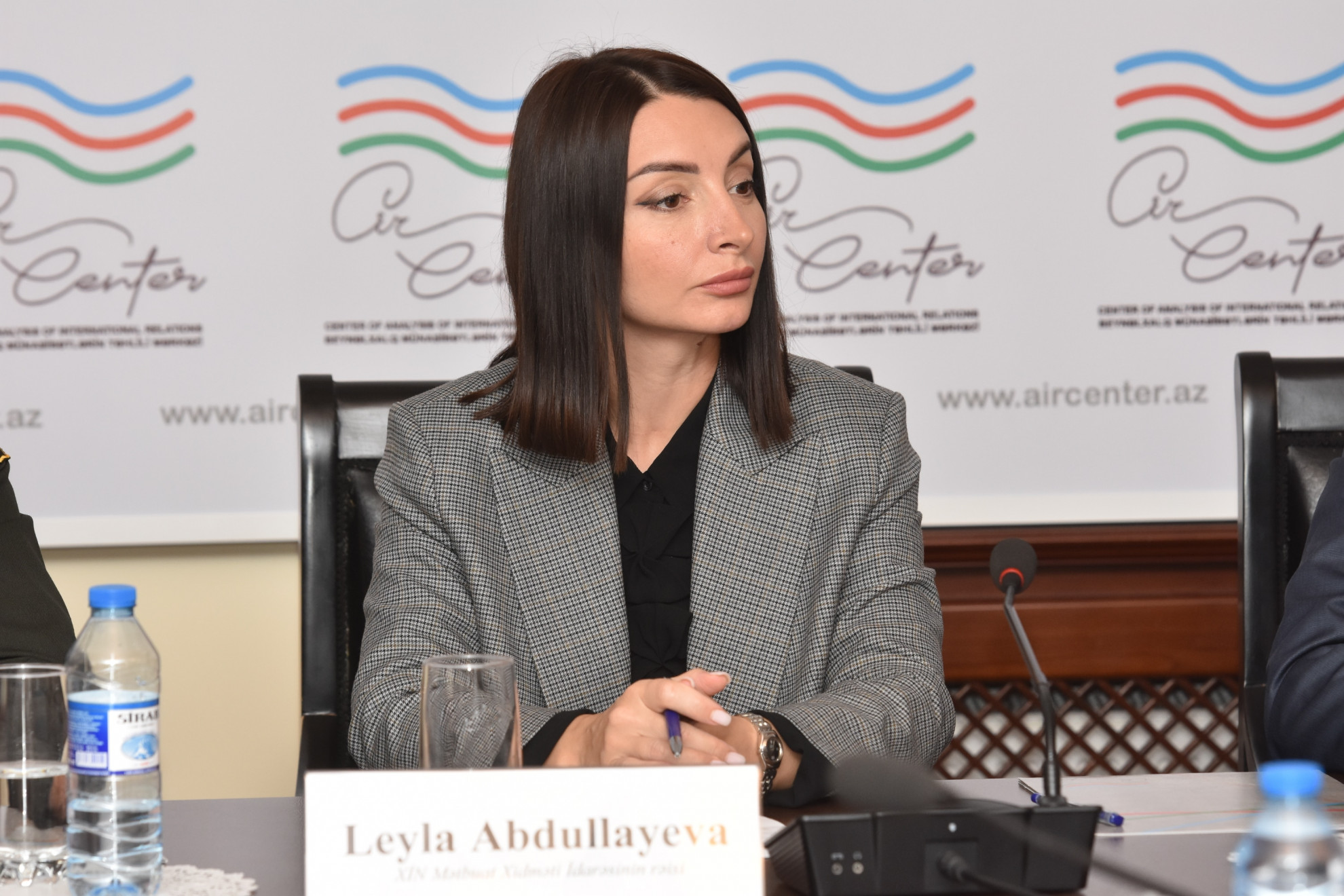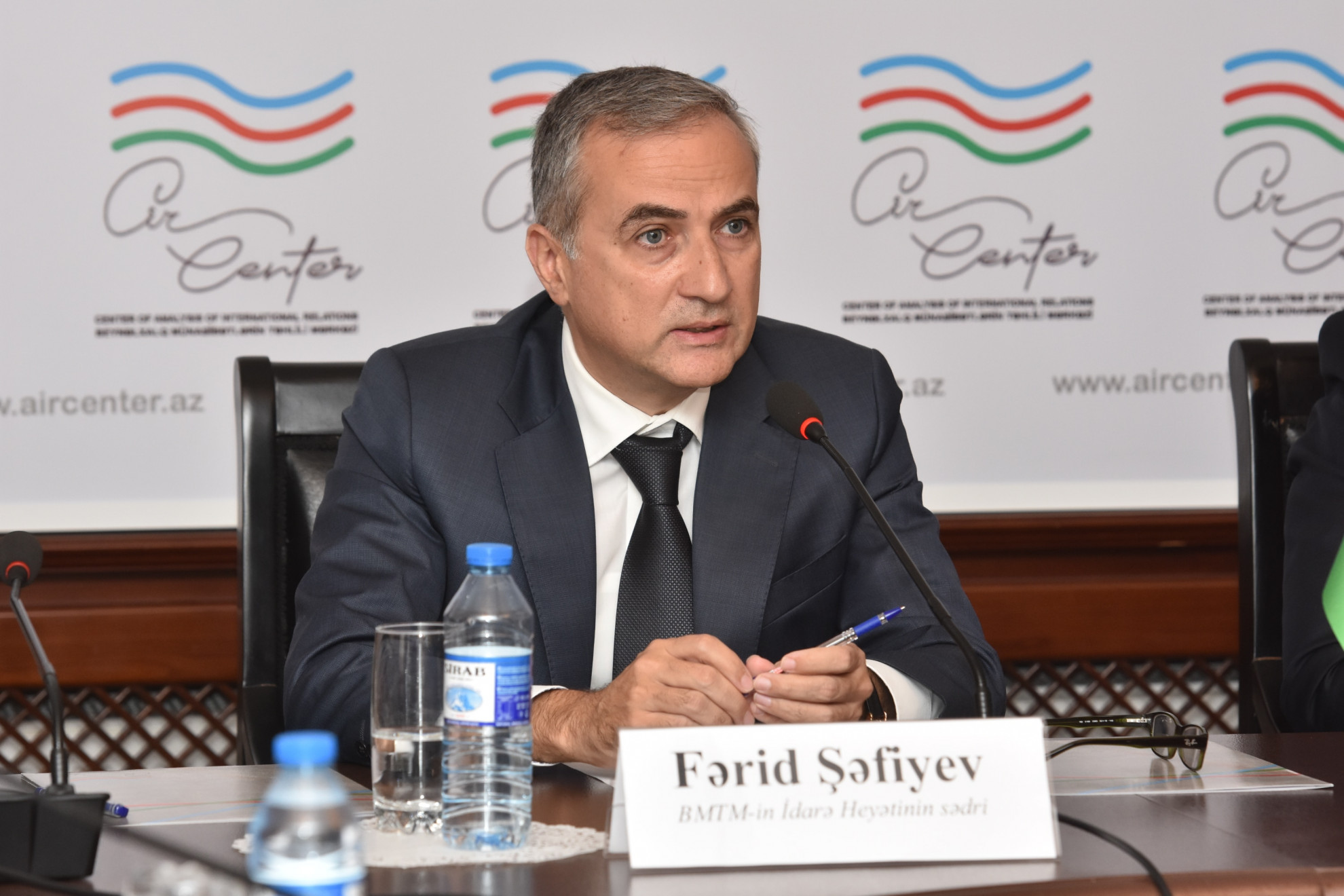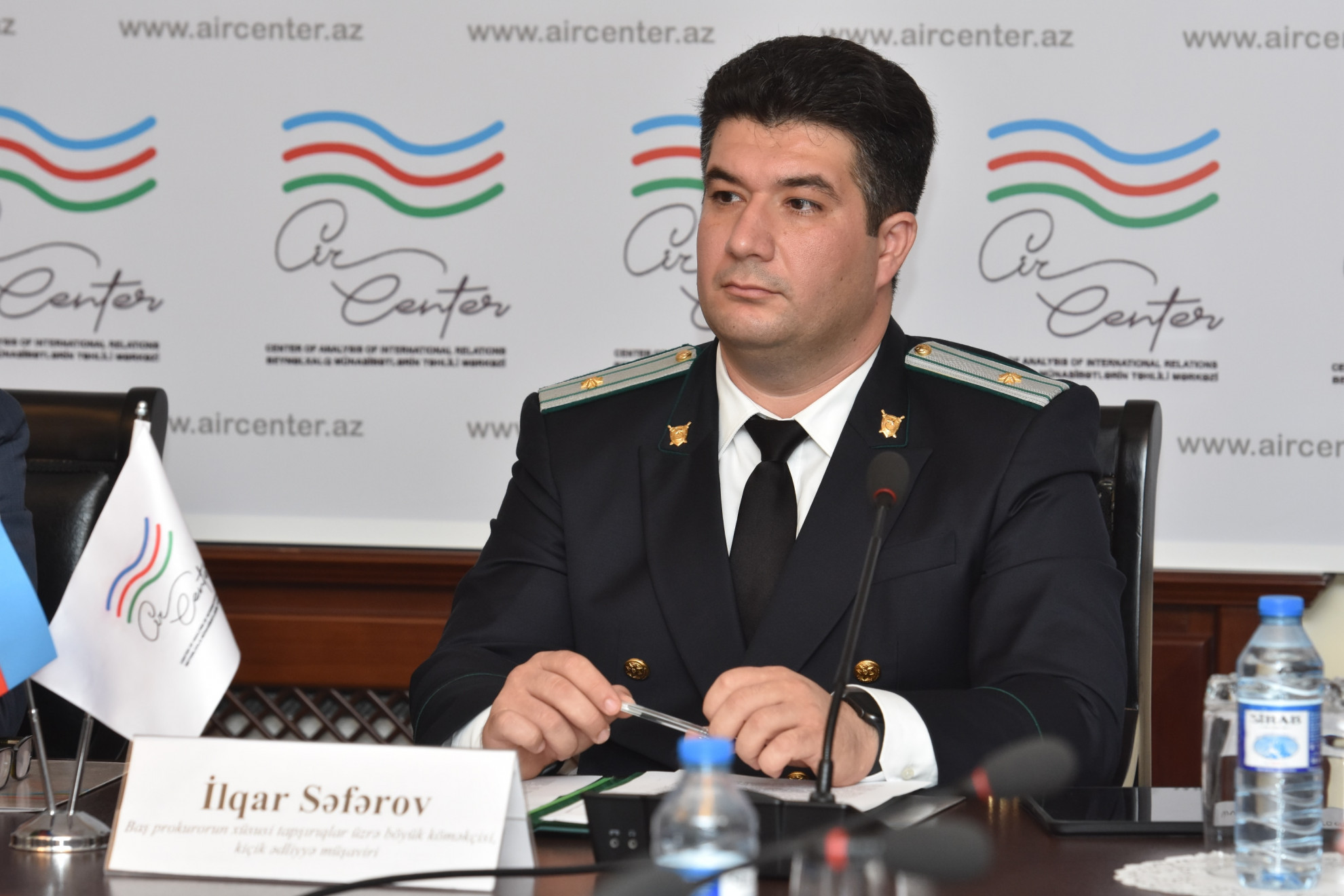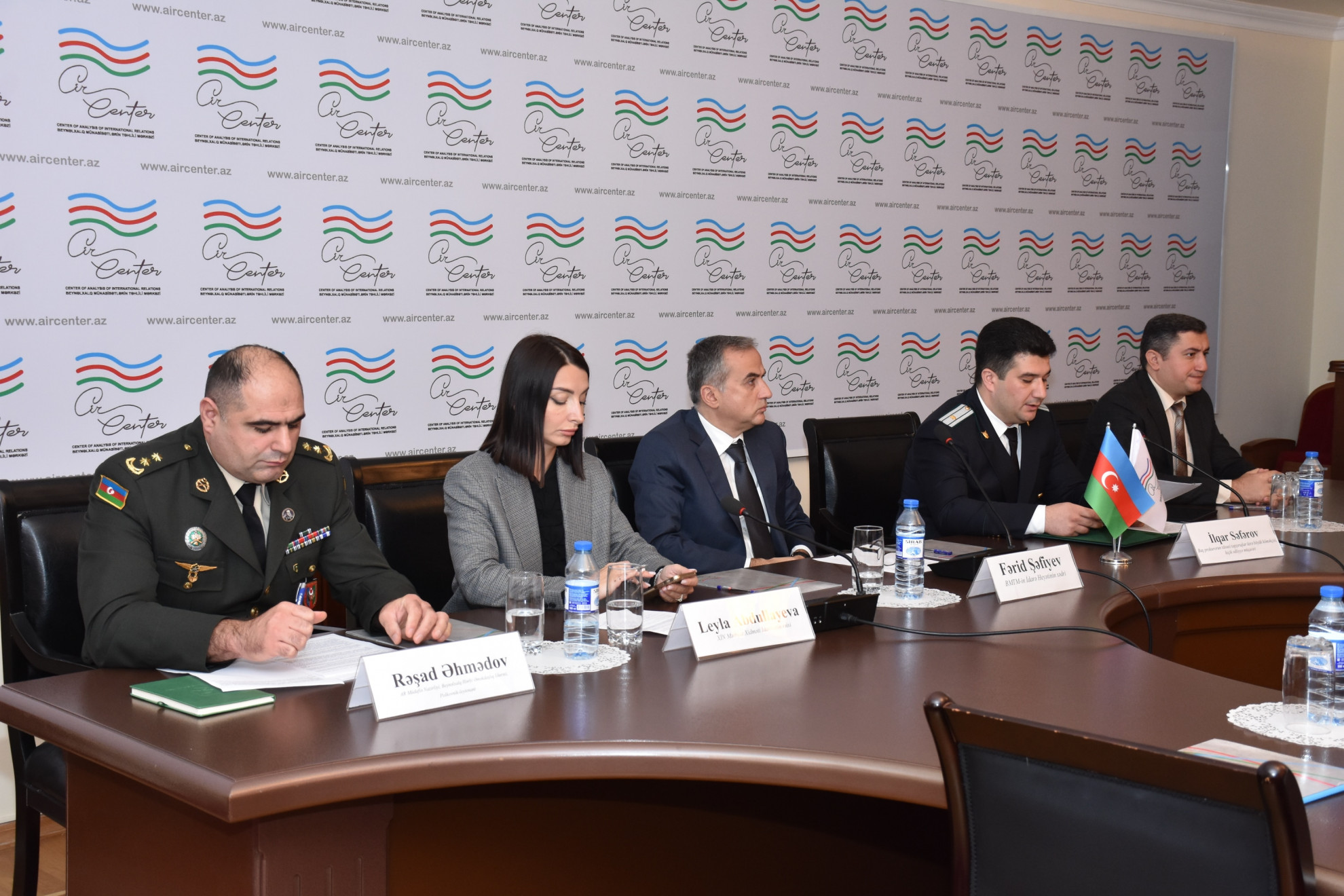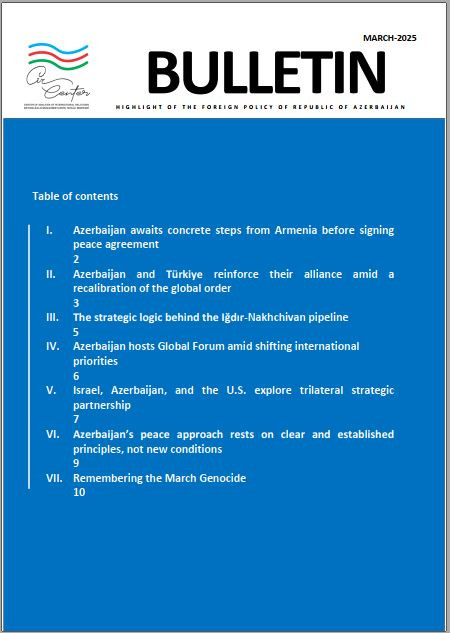On October 11, 2022, a round table discussions were held at the AIR Center dedicated to the second year since the missile attack on Ganja city of Azerbaijan. At the beginning, a minute of silence was observed to honor the memory of the martyrs, who sacrificed their lives for the territorial integrity of Azerbaijan. Then, the AIR Center Chairman Farid Shafiyev, started the discussions by noting that in 30 years Armenia committed numerous crimes against Azerbaijani civilians, and the missile attack on the city of Ganja two years ago at night on October 11, 2020, was one of them: "Armenia should be held responsible for the war crimes committed against peaceful Azerbaijani civilians and international organizations must express their opinion in this regard."
Speaking later, Ilgar Safarov, junior judicial adviser and senior assistant to the General Prosecutor General for special tasks said that Ganja, the second largest city of Azerbaijan, was repeatedly attacked by rockets and artillery in October 2020, and during those attacks members of 6 families were completely killed. According to him, investigations are being conducted in the Investigation Department of the General Prosecutor's Office of Republic of Azerbaijan regarding the attacks on Ganja. He added that since war crimes were committed on the territory of Azerbaijan during the 44-day Karabakh War, criminal cases have been initiated against those who committed them under the relevant articles of the Criminal Code of our country, thus the culprits will soon be brought to justice.
Leyla Abdullayeva, head of the Press Office Department of the Ministry of Foreign Affairs, said that the rocket attacks by Armenia against the peaceful population of Azerbaijan doubtlessly are war crimes. According to her, these actions represent an obvious violation of human rights and the fundamental principles of international law: "After the end of the war, a petition was filed in the European Court of Human Rights and in the International Court of Justice regarding racial discrimination. Ganja events were included in both petitions. The process is time consuming, thus the cases are still under review. Azerbaijan will use all opportunities to hold Armenia responsible for the crimes against its civilians."
Deputy Head of the Cooperation Department with International Organizations and Western Countries of the International Military Cooperation Department of the Ministry of Defense, Rashad Ahmadov, noted that targeting the civilian population during the war is a gross violation of the norms and principles of international law, including the Geneva Convention on the Protection of the Rights of the Civilian Population. According to him, missile attack on Ganja, located 80 km away from the area where the military operations were conducted, is a war crime, an act of terrorism and should be condemned. The Ministry of Defense official representative emphasized that during the war, in contrast to Armenia, Azerbaijani army operated within the norms and principles of international law during the 44-day Karabakh War.
Matin Mammadli, leading advisor at the AIR Center, noted in his speech that such war crimes hinder the peace process. According to him, the negotiations between Azerbaijan and Armenia are conducted with humanitarian purposes, but unfortunately Armenia shows non-constructive stance in this area: "Our expectation from Armenia is to admit the committed war crimes and to bear the legal, political, economic and cultural responsibility for them. Without this, we cannot guarantee sustainable peace in the region."
The round table continued with additional questions and discussions on the topic.

